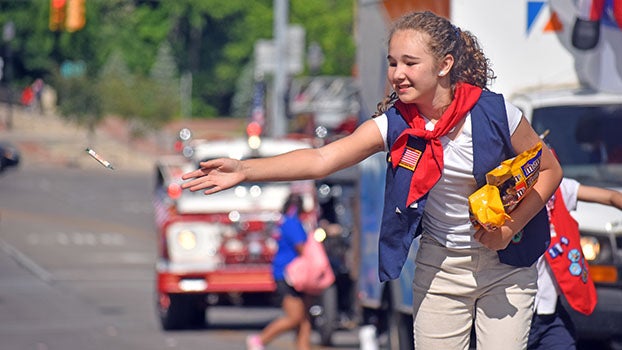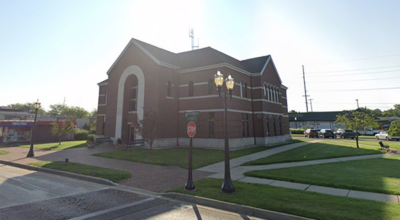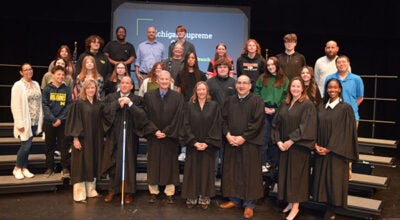NHS Key Club inspires voluteerism
Published 11:00 pm Friday, May 14, 2010

Niles High School freshman Libby Hein recently spoke at the 2010 Key Club District Convention on the subject of finding ways to develop volunteer projects flexible for high school students with busy schedules. Hein is a member of the NHS Key Club led by teacher Ryan Bigelow. (Daily Star photo/JESSICA SIEFF)
By JESSICA SIEFF
Niles Daily Star
Once possibly overlooked on the agendas of young people, community service is becoming not only something vital to a student’s chance for success in their endeavors after high school – but somewhat of a movement as well.
From the president’s office to college admissions offices, the importance of the experience of volunteering and being active in one’s community is being embraced by high school students.
The Niles High School Key Club is just one example.
Key Clubs, part of Kiwanis International, a “service leadership organization” for teens, can be found in high schools across the country. Students get out in their community to help with anything and everything from food drives to park cleanup, the idea being to foster a sense of service and involvement in their communities.
“Just like their president wants them too,” said Ryan Bigelow, teacher adviser for the NHS Key Club.
The club is facing the threat of being lost in school cuts.
Bigelow, who devotes his time to the club purely on an extracurricular basis, is one of nine teachers in the Niles Community Schools district to be laid off following the need for millions in cuts. Though he’s trying to find a replacement, he hasn’t found anyone to take over the position yet. The club is purely volunteer-driven, much like the projects its members get involved in.
A vehicle for community service now in need as well.
“These kids are great here,” Bigelow said, adding he’d hate to see the club go away.
“It gives you the opportunity to see other cultures and see what’s going on,” he said. “One of the dreams I had working here at Niles was to build an opportunity for volunteering. Every year our membership goes up quite a bit.”
The club is an example of how volunteerism with teenagers is on the rise. Just around five years ago when Bigelow took on the extracurricular club, five or six members were taking time out of their schedules to get involved.
Today that number has grown to 70.
The reason? It’s hard to say. A focus on service has been made by many, including President Barack Obama – but Bigelow said colleges are also putting an increased emphasis on community service when it comes to admissions applications.
“I think part of it is too that kids are inherently good,” he said. “And they want to help.”
They’re also, understandably, inherently busy – with sporting events, academic and extracurricular activities, responsibilities at home or after-school jobs and studies.
The insistence on some to find time to get out in the community and help is just another example of how service is something students are not only understanding but incorporating into their daily lives.
NHS freshman and Key Club member Libby Hein recently spoke at the 2010 Key Club District Convention about how servant leaders could work with students to allow for more convenient opportunities to get involved.
“I think the convention was a real eye-opener to some of the big problems we need help with. There are people who need your help and want your help.”
Students today, she said in her speech, “do not have the time to focus on just one project. Successful people are busy people. With sports, clubs and other activities going on in teenagers’ lives, to center time around a project is extremely difficult. Effective servant leaders should be able to demonstrate to involved students how they can fit volunteer projects into such busy schedules.”
Hein herself splits her time between school, studying at Andrews University, being captain of her soccer team, taking part in Future Farmers of America and 4-H and more.
“A lot of kids don’t think they have time,” she said. But through Key Club Hein said members have been making efforts after school, during evenings and on weekends with everything from packaging food to go to those in need in Africa and Haiti, helping out with the Niles Community Gardens project, trick-or-treating for UNICEF and picking up at area parks.
“Combining this awareness with the proper motivation to serve is key,” Hein said. “If a project can be seen by volunteers as being worthy of their precious time, they will usually find a way to make it happen. They will be there. It is important that a servant leader be able to convey to others that their project can make a difference. Enthusiasm is contagious.”
Getting involved in Key Club came after her mother had been involved with the Kiwanis Club and her sister joined Key Club herself – but Hein is spreading the word, saying she even convinced some of her friends to join.
Hein said if she could say anything to incoming and current students, it would be, “you can really get involved in the community. So why not join?”






